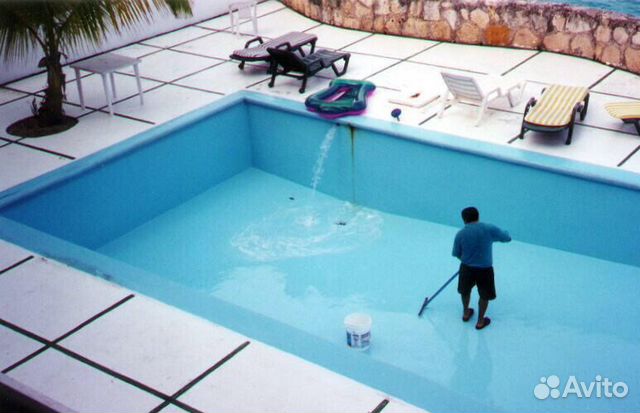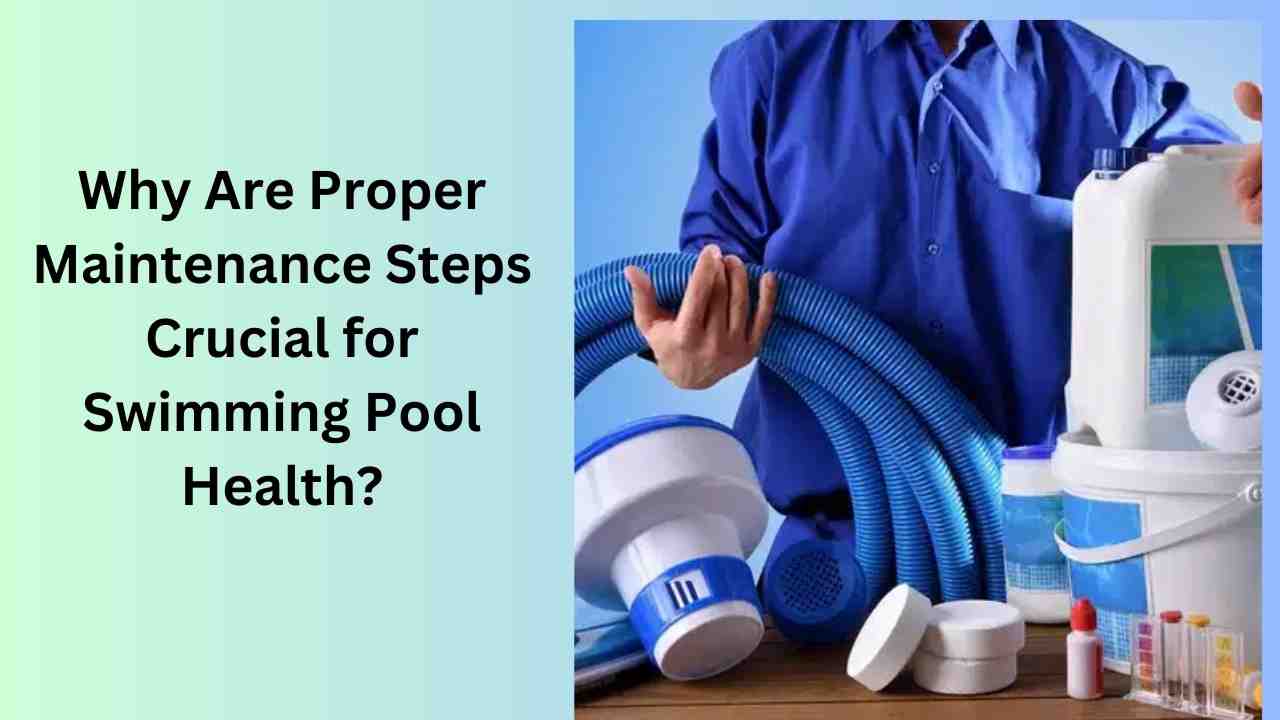A swimming pool is more than just a place to cool off on a hot day—it’s an investment, a gathering spot, and a personal retreat. To keep your pool clean, safe, and in good condition, proper swimming pool maintenance is non-negotiable. Neglecting essential maintenance can lead to costly repairs, health risks, and an overall unpleasant swimming experience. This blog will explore why consistent maintenance is vital and provide simple steps to maintain a healthy pool.
NOTE : Make pool care a priority today! Follow these maintenance tips to keep your pool sparkling and inviting. If you’re short on time or need expert help, consider hiring professionals to manage your swimming pool maintenance. A well-maintained pool means less hassle and more time for fun and relaxation!

The Importance of Swimming Pool Maintenance
Maintaining your swimming pool is not just about aesthetics; it’s about ensuring the health and safety of those who use it. Below are the reasons why proper pool maintenance matters:
- Health and Safety:
A well-maintained pool prevents harmful bacteria, algae, and other microorganisms from thriving. Without regular upkeep, swimming in your pool can lead to skin irritation, infections, or even more severe health issues.
- Prolonged Lifespan of the Pool:
Regular cleaning, chemical balancing, and equipment checks ensure your pool stays in excellent condition for years. Neglect can cause damage to the pool structure, filters, and pumps, which may result in expensive repairs or replacements.
- Enhanced Appearance:
A clean, sparkling pool is far more inviting than one with cloudy water or visible debris. Proper maintenance ensures your pool looks its best year-round.
- Cost Efficiency:
Addressing small issues early on through consistent maintenance saves money in the long run. For example, clearing debris regularly can prevent clogged filters, which might otherwise require costly replacements.
Core Steps in Swimming Pool Maintenance
Regular Skimming and Cleaning
Removing debris is one of the simplest and most effective ways to maintain your pool.
- Why It’s Necessary:
Debris like leaves, insects, and dirt not only make the pool look dirty but can also clog the filtration system and promote algae growth.
- How to Do It:
Use a skimmer net daily to remove floating debris. Weekly, use a pool vacuum and brush to clean the walls and floor.
Balancing Pool Chemicals
Keeping the water’s chemical levels in check is a cornerstone of swimming pool maintenance.
- Key Chemical Levels:
- Chlorine: Kills bacteria and prevents algae buildup. Maintain levels between 1-3 ppm (parts per million).
- pH Levels: Aim for a pH level of 7.2-7.8 to keep the water balanced and prevent eye irritation.
- Alkalinity: This stabilizes pH levels and should be between 80-120 ppm.
- Calcium Hardness: Prevents corrosion or scaling and should stay between 200-400 ppm.
- How to Test Chemicals:
Use a pool testing kit at least twice a week. Adjust chemical levels based on the results to keep the water safe and clean.
Cleaning the Pool Filter
The filter is your pool’s main line of defense against dirt and debris.
- Types of Filters:
- Sand Filters: Require backwashing every 4-6 weeks.
- Cartridge Filters: Clean every 2-4 weeks by rinsing with a hose.
- DE (Diatomaceous Earth) Filters: Backwash and replenish DE powder when needed.
A clean filter ensures water circulation remains effective and prevents contaminants from building up.
Shocking the Pool
Shocking involves adding a high dose of chlorine to sanitize the water.
- When to Shock:
- After heavy use or a pool party.
- After storms or heavy rain.
- If the water turns cloudy or green.
- How to Shock:
Follow the instructions on a pool shock product. Ensure the pool pump runs during and after shocking to distribute the chemicals evenly.
Preventing Common Pool Problems
Algae Growth
Algae can make your pool water green and slippery, and it can grow quickly if left unchecked.
- Prevention Tips:
- Maintain proper chlorine levels.
- Brush walls and floors weekly to remove algae spores.
- Use an algaecide regularly as part of your routine.
Cloudy or Murky Water
Cloudy water is often a sign of poor filtration or chemical imbalance.
- Solutions:
- Test and adjust chemical levels.
- Clean or replace the pool filter.
- Run the pump for a longer duration each day.
Scale and Stains
Hard water and imbalanced calcium levels can cause scale buildup and staining.
- How to Address:
- Monitor calcium hardness levels.
- Use a pool stain remover for tough marks.
Seasonal Maintenance Tips
Swimming pools require different care depending on the time of year.
- Summer Maintenance:
- Test and balance chemicals more frequently due to increased use.
- Skim and vacuum the pool regularly.
- Winter Maintenance:
- Use a pool cover to protect against debris.
- Add winterizing chemicals to prevent algae growth.
- Spring Maintenance:
- Inspect and clean the pool equipment.
- Shock the pool and balance the water chemicals before use.
The Role of Professional Maintenance
While regular maintenance can often be handled on your own, hiring a professional for swimming pool maintenance has its advantages.
- Why Hire a Professional:
- They have the expertise to spot issues early.
- Professionals use specialized tools and techniques for thorough cleaning.
- They can create a tailored maintenance schedule for your pool’s unique needs.
If you find pool upkeep overwhelming or simply don’t have the time, a professional service can be a worthwhile investment.
Conclusion
Maintaining your pool doesn’t have to be a daunting task. By following these simple steps for swimming pool maintenance, you can ensure your pool remains clean, safe, and enjoyable for everyone. Consistency is key, whether it’s skimming debris, balancing chemicals, or cleaning filters. Regular upkeep not only protects your investment but also enhances your overall swimming experience.
For more insightful articles related to this topic, feel free to visit insighthubster
